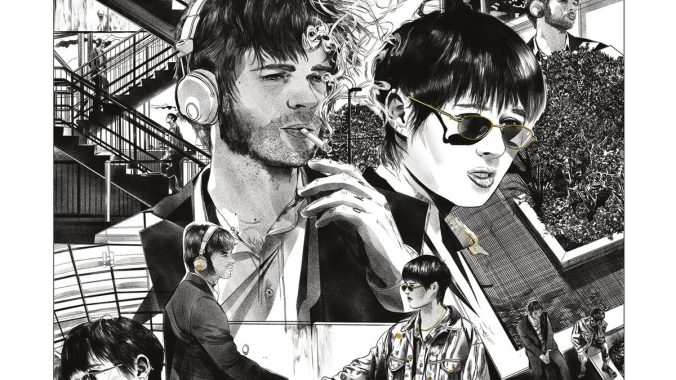Everyone’s Crushed Finds Water From Your Eyes at the Height of Their Powers
The experimental rock duo showcase their evolving chemistry across their best album yet

Everyone’s Crushed, the latest album from experimental indie-pop duo Water From Your Eyes, picks up right where their last album left off. Its cheeky opening track, “Structure,” shares the same name as the Brooklyn natives’ 2021 breakthrough record. It’s as if vocalist Rachel Brown and multi-instrumentalist/producer Nate Amos are world-building, expanding on the lore of their dense catalog. On their first album for the revered indie titan, Matador Records, Water From Your Eyes deliver on the simmering anticipation surrounding them. It’s another case that marks Brown and Amos as one of the most innovative, exciting creative partnerships of the moment.
Although this is technically their sixth album as Water From Your Eyes, Brown and Amos have a long history together. Formerly a couple, they’ve worked on album after album after album, and their artistry has become a seemingly bottomless pit of fun, off-kilter ideas. Their prolific nature abounds in thanks for coming, Brown’s solo project that also includes plenty of Amos’ songwriting and production. With 79 Bandcamp releases under the thanks for coming moniker, these two musicians understand the symbiotic relationship at the heart of all creative endeavors. There’s also Amos’ solo music as This Is Lorelei and his project with indie-pop auteur Lily Konigsberg as My Idea. How they’ve managed to make so much music—and so much great music at that—is a herculean feat.
On Structure in particular, their vision became fully reified, reaching an apotheosis it never had until that point, merging pop balladry, Berlin techno and indie rock in methods that seemed unfathomable until they executed it. Despite that record’s elliptical abstractions, Everyone’s Crushed takes their collagist ethos a step further. Brown and Amos have thrown Structure out the window, given that most tracks on this album defiantly resist actual structure itself. Take the standout closer, “Buy My Product,” which flouts a conventional verse-chorus format in lieu of tumultuous crescendos and swirling, discordant layering. While Brown’s lyrics maintain their dissociative, surrealist mindset, it’s hard not to hear “Buy My Product” as a noisy lament about the inescapability of hypercapitalism. Brown intones the song’s title, their voice evincing a disillusionment with the economic, consumerist state of the country writ large. “There are no happy endings,” their opening mantra goes, before succumbing to the system itself as a means of self-preservation: “There are only things / Buy my product.”
-

-

-

-

-

-

-

-

-

-

-

-

-

-

-

-

-

-

-

-

-

-

-

-

-

-

-

-

-

-

-

-

-

-

-

-

-

-

-

-








































